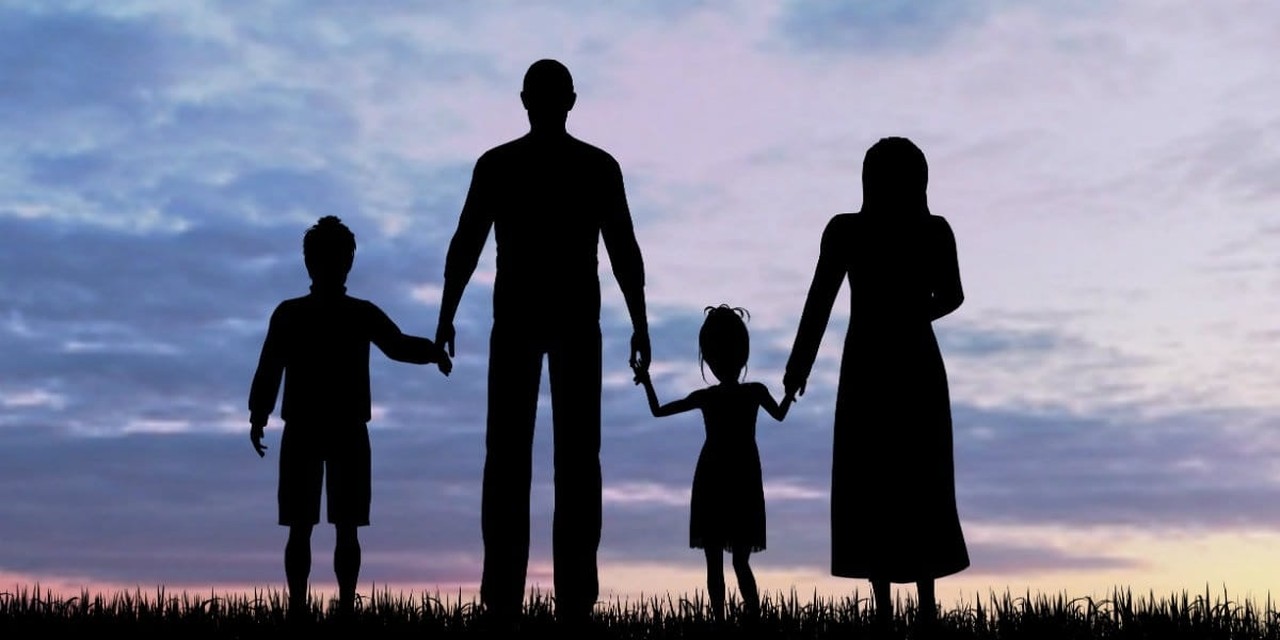Here's What Christians Need to Understand about DACA

The Deferred Action for Childhood Arrivals - aka DACA - and “Dreamers” have been all over the news lately. You might be noticing a lot of Christians addressing this issue, and for good reason. As ERLC notes, “We now have the responsibility to work through this complex situation in a way that honors the rule of law as well as the biblical ideal of justice.”
As you read this, please keep in mind that everything about Immigration Law is incredibly complicated, and what I’m giving you is a simple snapshot of a singular issue. Also, I’m not a lawyer or a politician. I’m just a public school teacher, so this is as “layman's terms” as it can get.
Here’s what you need to know about DACA.
What is DACA?

What is DACA?
SLIDE 1 OF 7
DACA stands for “Defered Action for Childhood Arrivals.” President Obama created DACA in 2012 through an executive order. It is a bit of a spinoff from the Dream Act that was drafted in 2001 but never passed. DACA recipients are referred to as “Dreamers.” They were brought to this country as minors, through no fault of their own. Dreamers are people who, while they may not have been born in the United States, they have spent most of their lives here. The parameters for signing up for DACA included proof of a clean criminal record, and current enrollment in a high school, college, or university or service in the military. They also had to have arrived in the U.S. before 2007, when they were under the age of 16. DACA recipients can live and work in the U.S. for a 2 year renewable period.
Image Credit: ©Thinkstock
What’s going on with DACA now?

What’s going on with DACA now?
SLIDE 2 OF 7
Back in September, the Trump Administration announced that it was phasing out DACA apparently in an effort to force action from Congress.Obama’s executive order was intended to be a temporary measure. However, Congress still has not been able to come to a consensus on what to do about the Dreamers. Their time is running short to find a solution. The President has given a deadline (March 5) for Congress to approve legislation for the Dreamers. Unfortunately, this has led to uncertainty for thousands upon thousands of people currently living in the US, who have lived most of their lives in our country. These people were not brought here of their own volition, but were brought by their parents, grandparents, or trusted adult family members at an age when they could not be held legally responsible for crossing the border.
Image Credit: ©Thinkstock
How do people feel about all of this DACA stuff?

How do people feel about all of this DACA stuff?
SLIDE 3 OF 7
According to this CBS News poll, 9 in 10 Americans (about 87%) are in favor of allowing immigrants who entered the US illegally as minors to say in the US.

*Image Credit: CBS News - taken from the article linked above by Jennifer DePinto, Fred Backus, Kabir Khanna, and Anthony Salvanto
According to the CBS poll, the belief that Dreamers should be allowed to stay in the US crosses party lines. A Fox News poll also found that 83% of Americans support a pathway to citizenship for illegal immigrants and 63% of Trump voters favor granting the Dreamers citizenship. So, this clearly is a bipartisan issue. Almost everyone seems to be in agreement that something needs to be done to help the Dreamers.
Image Credit: ©Thinkstock
Alright then, if everyone agrees, what happens next?

Alright then, if everyone agrees, what happens next?
SLIDE 4 OF 7
It’s rare in our current culture to find something that both major political parties agree on, but it seems that we’ve found some common ground when it comes to the Dreamers. Yet, Congress can’t seem to come to a solution that both parties are happy with. The argument primarily centers around what other immigration reforms should come with passing the Dream Act — the act proposed back in 2001 that provides a pathway to citizenship for the Dreamers. It’s the logistics and details of this issue (among others) that let to the recent government shutdown. The new February 8th deadline is looming ever closer and as of right now, it doesn’t seem that Congress is any closer to finding a solution for the Dreamers. So, we don’t know what happens next, and if you’re frustrated, imagine how much more frustrated someone who has lived and worked in the U.S. under DACA for the last 10 years must feel.
Image Credit: ©Thinkstock
It’s about more than just legal status.

It’s about more than just legal status.
SLIDE 5 OF 7
We aren’t talking about 800,000 people losing just their jobs. They could lose their health insurance — which may affect more than the DACA recipients, it could also affect their children (U.S. citizens) and families. The New York Times mentions a 31-year-old single mother, Amparo Gonzalez, who is in danger of losing her job at a warehouse company. With that loss, she would also lose her health insurance through her employer — insurance that covers not just the treatment for her chronic colon disease, but her 13-year-old daughter’s health as well. The National Immigration Law Center estimates that losing work legally would mean forfeiting health insurance and other benefits by employers for over 450,000 people. And although DACA recipients were never eligible for federal health care programs like Medicaid or Medicare, the law center’s research estimates that 290,000 could lose eligibility for state-subsidized health coverage. Their research also found that more than half of DACA recipients could potentially be forced to relinquish driver’s licenses. So even though some people could probably find work under the table once those permits are gone, many of them would have no way to get there. Not to mention the issues created with those who need occupational licenses (i.e. nursing and cosmetology).
The effects of the loss of DACA could be even further reaching than DACA recipients and their families. A CNBC economist estimated that the loss of these 800,000 people from the US workforce could cost the US economy more than $400 billion. Granted, this is just an estimate, but the accuracy of the estimate isn’t my point. The fact is, the loss of 800,000 employees in the US will have consequences within our economy.
Image Credit: ©Thinkstock
What is my role in this?

What is my role in this?
SLIDE 6 OF 7
The main thing you need to understand about DACA and the Dreamers — regardless of your political beliefs — is that there are hundreds of thousands of people in our country who are confused, lost, angry, and hurting.The Dreamers are people who have known no other home than the United States. They’ve gone to school here, grown up here, worked here, and contributed to our economy for as long as they can remember. Many of them have served in our Military. The 800,000 Dreamers who meet these parameters feel betrayed by a country they’ve always called home. Our role is to do our best to put politics aside and to show compassion towards the Dreamers. In spite of what the news and social media may lead you to believe, this is not a political issue. It is a humanitarian one.
Image Credit: ©Thinkstock
What if I want to help?

What if I want to help?
SLIDE 7 OF 7
“Show love to the foreigner, for you were foreigners in the land of Egypt” (Deut. 10:19). This is just one of the many verses throughout scripture calling God’s chosen people to welcome foreigners and aliens. Living this verse does not mean you have to politically support a looser stance on immigration law. It just means that we treat those who are here with respect. It means that we allow them the courtesy of our sympathy during a time when they are uncertain about their futures. There are over 800,000 who are wondering if they will still have a job in the coming weeks, and this could be the least of their worries. Deportation is not off the table, and people could be forced to go back to a country they don’t even remember.
If you are interested in helping the Dreamers, obviously our first action should be to pray. Pray for God to reach out and bring the warring factions of our country together. Pray for healing to happen from within our own hearts. Pray that we will learn how to love and stand beside our fellow man. Pray that we learn how to work together. Outside of that, the best thing to do is to contact your local representatives and let them know you want them to find a way to pass legislation for the Dreamers and DACA. There are various organizations you can financially support and finding them is as simple as conducting a Google search. However, the real issue is a legislative one, and unless Congress can come to a consensus on the Dream Act then no solution will be found for DACA recipients. Here is a website that will give you information on your House Representative and how to contact them, and here is the information for your state Senators. Familiarize yourself with the options when it comes to the Dream Act. For example, if you want a solution for the Dreamers that does not include funding for a border wall, then ask your Senators to support a Clean Dream Act. If you are in favor of a border wall, but you also believe in providing a path to citizenship for the Dreamers, let your representatives know what you think a reasonable compromise would be.
Most of the country agrees that the Dreamers should get to stay here legally. Let’s focus on that. Let’s focus on what we agree on for once, instead of what we disagree on. That might be the only way we reach any solutions.
Rachel-Claire Cockrell is a wife, a writer, and a high school English teacher. She is passionate about her students and does her best to exemplify the love of Christ to those kids who may not experience it anywhere else. She and her husband live in Arkansas. Follow her blog at https://rachelclaireunworthy.com/ or on Facebook.
Image Credit: ©Thinkstock
Originally published January 31, 2018.









